The suffering of laboratory monkey transport in images
- News
Animal Rights Belgium requested inspection reports from the Animal Welfare Department on the welfare of monkeys during transport in the period from 2023 to August 2024. We received 10 inspection reports including images. Brussels Airport is an important transit port for the global trade in laboratory monkeys. The animals are transported by the dozens to hundreds at a time in small crates by shady cargo companies such as BinAir, SkyTaxi and RAF-AVIA.
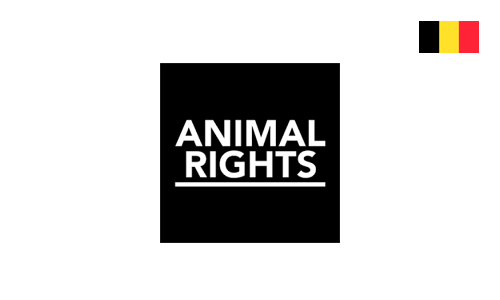
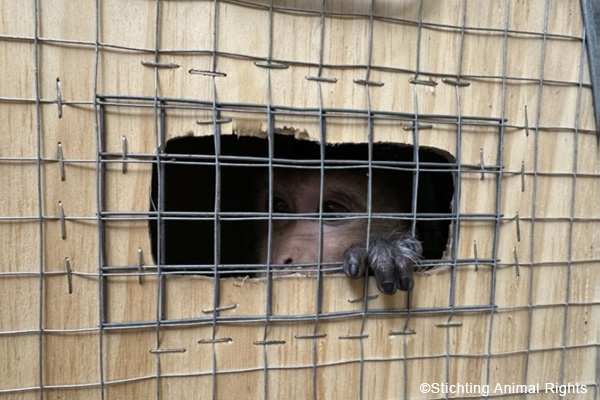
Origin and destination
The monkeys come mainly from Mauritius or Vietnam and are then transported by road to laboratories in Germany, France and Spain. In Spain there is also a notorious facility called Camarney, where monkeys are again placed in appalling conditions. The transport by road to Spain takes another 16 hours or so.
In some cases, the monkeys are put back on a flight to the United Kingdom or the United States. All in all, these animals often spend many hours in their crates. Each crate contains multiple compartments, each containing an individual monkey. The numbers are enormous: in total, we received inspection reports of ten transports, each with tens to hundreds of monkeys. In October 2023, no fewer than 456 monkeys landed from Mauritius, destined for the United Kingdom and the United States. On January 23, 2024, 520 monkeys arrived from Mauritius.
Images of scared monkeys
The images show anxious monkeys locked in wooden crates. The crates are equipped with ventilation holes, but give the animals little room to move. Although the monkeys are given water and a piece of fruit during their transport, the images show how stressed the animals are.
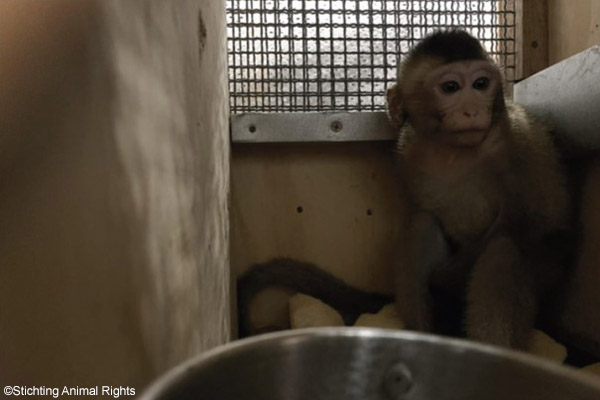
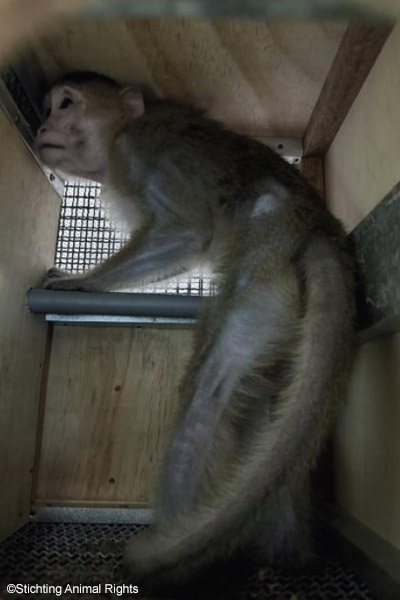
Monkey dealer Hartelust
The Dutch monkey dealer Hartelust also uses the Belgian airport for its monkey trade. Three of the reports concern transports to and from the Netherlands, so it is more than likely that it concerns Tilburg monkey trader Hartelust. Oddly enough, a report from 17 July 2024 mentions a shipment with a Dutch sender (Hartelust), but the monkeys were quarantined for three months in France (113 animals) and Spain (220 animals). Hartelust may have acted as a broker here.
Cold conditions
The inspection reports reveal various abuses. For example, the report of July 24, 2023, stated that on an onward flight of +1.5 hours the temperature could not be controlled in the cargo hold. During the flight, the temperature was only 10 C, which is too cold for the animals.
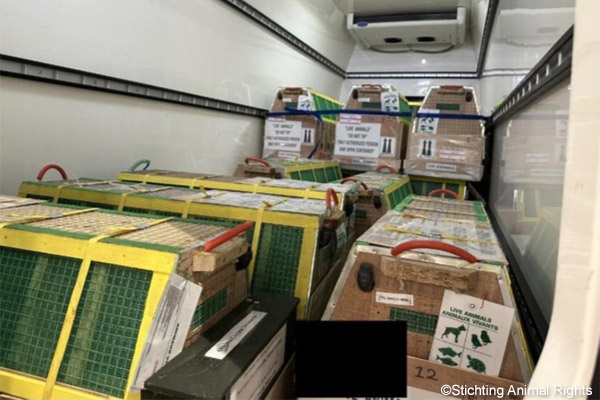
According to the guidelines of the International Air Transport Association (IATA), animals must be transported under certain conditions, but the inspector admitted that these regulations would not be complied with. Nevertheless, the transport was approved. Rowena Vanroy of Animal Rights reacted strongly: “These guidelines are useless if they are not applied. The fact that the inspector knew that the transport was not compliant, but still allowed the animals to leave, is unacceptable.”
Injured on transport
On May 28, 2024, 79 monkeys were transported to the airport by bus from the Netherlands. Most likely, these are monkeys from monkey dealer Hartelust. The monkeys were destined for the United Kingdom.
The inspector notes that one monkey had a slight prolapse of the anus. Despite this the monkey was declared healthy and shipped to the UK. The photos show that the animal is covered in blood. Moreover, anal prolapse is indeed a serious condition that can lead to death. In many cases, it is caused by chronic diarrhea. For example, it is prohibited to transport animals with such a wound for cows and pigs. The fact that the animal is declared healthy by the local veterinarian mainly points to the inadequacy of the system in which even injured animals are transported without mercy.
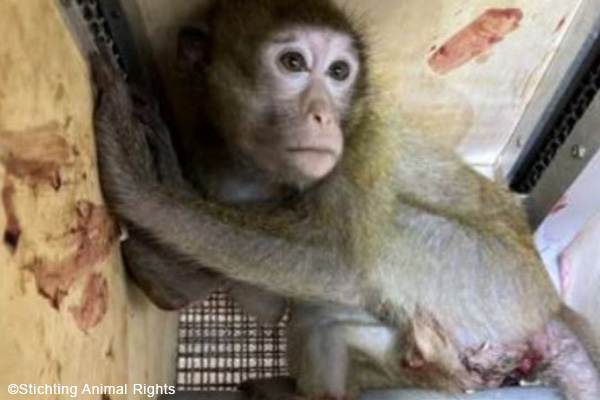
Rowena Vanroy points out: “An animal with a prolapse is not healthy and the animal in question clearly did not look in good condition. We believe that the animal should not have been transported and are taking legal action.”
Death during transport
On July 17, 2024, another incident occurred. 333 monkeys were brought in for a flight to New York JFK, from France and Spain. Although the sender was indicated as the Netherlands, it is very likely that monkey trader Hartelust was also involved in this shipment. One monkey was found dead in the crate. The inspector suspected that the animal had reacted badly to the anesthesia. Vanroy: “Some animals are difficult to catch for transport, which means that they are put under anesthesia, which can be very risky. In principle, animals that are under anesthesia should be monitored constantly.”
Call to action
Animal Rights demands that Brussels Airport immediately ceases facilitating the trade of monkeys for animal testing. This almost exclusively concerns animals that will serve in foreign laboratories for cruel tests. We call on the Federal government, the largest shareholder of the airport, to prohibit these malpractices. That is why we have started a petition . Regarding the important share of monkey trader Hartelust in this trade, we ask the Dutch government to take action.
